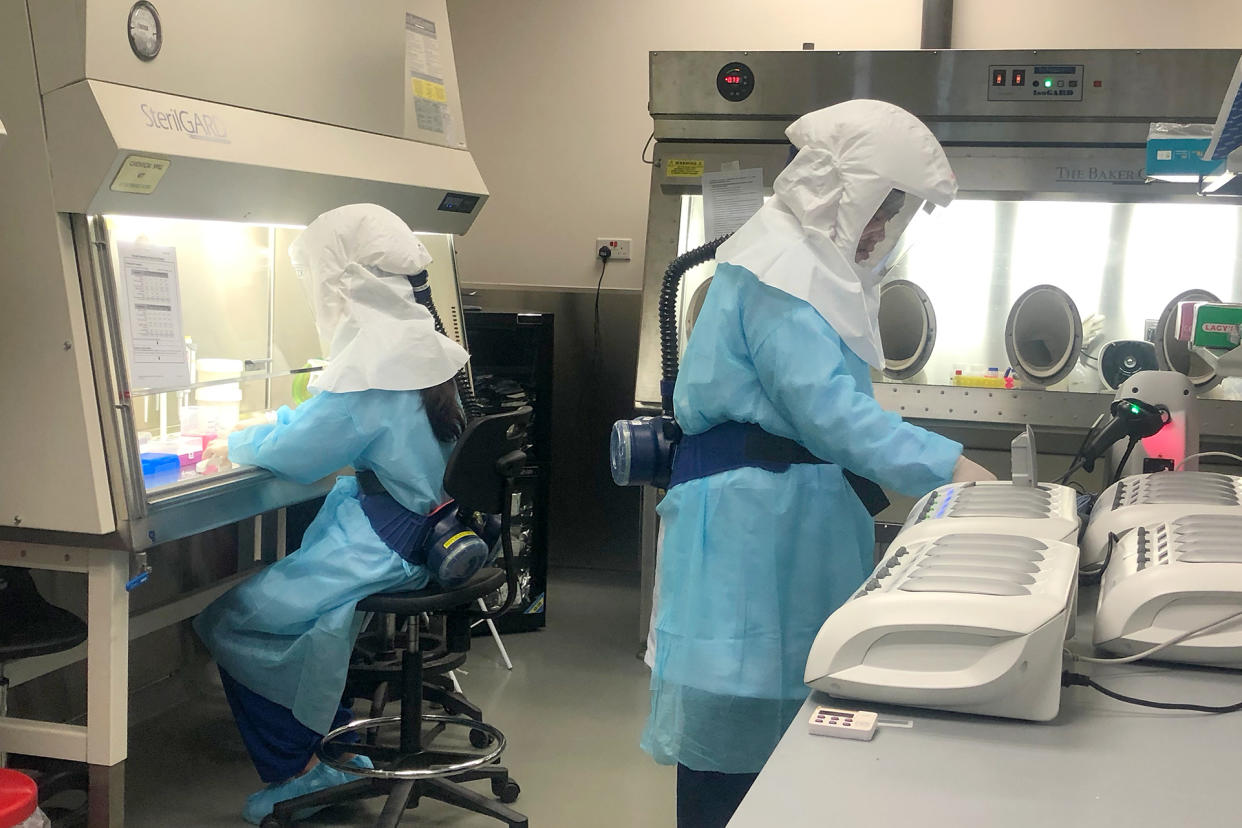COVID-19: Premature to make conclusions about virus variants - MOH official

SINGAPORE — All viruses will change over time, in part due to mutations within their genetic sequence, but it is still unclear if the sub-types of the novel coronavirus have different characteristics, said the Ministry of Health’s director of medical services Kenneth Mak on Friday (March 6).
At a press briefing by the Multi-Ministry Taskforce on COVID-19, Associate Professor Mak said, “We think it is premature to make any specific conclusions about whether or not a type of virus is more aggressive, more virulent, compared to another.
“But we continue to look at this carefully and we continue to await more information from scientific colleagues, researchers, who are actively involved in looking to understand better the natural behaviour of the virus as well as the critical ways in which we can treat this infection.”
Prof Mak was responding to a question about the different types of COVID-19 virus currently in circulation.
A preliminary study by researchers from Peking University's School of Life Sciences and the Institut Pasteur of Shanghai under the Chinese Academy of Sciences, based on an analysis of 103 sequenced genomes using strains from China, found that 70 per cent of strains were of a type dubbed “L”, which was more aggressive than the other 30 per cent of strains, dubbed “S”.
However, the researchers cautioned that their study - published on Tuesday (3 March) in the National Science Review, which is the journal of the Chinese Academy of Sciences - looked only at a limited range of data, and that follow-up studies of larger data sets were needed to better understand the virus’ evolution.
At the briefing, Prof Mak noted that there are now 108 sequenced genomes of the virus.
Mutations don’t affect testing kits
Responding to another question on whether mutations in the virus would affect the specificity of the testing kits, Prof Mak said, “So far the variations in the gene make up are in areas which do not affect the testing ability to identify this virus.
“It is also the case that when a test is developed...we aim to make that test as sensitive and specific as possible so as to be able to ease our ability to diagnose the presence of a virus,” he said.
“We will often do this by looking at common sites that can be easily identifiable from the virus and generally speaking we try to target areas which are not significantly prone to mutations, so even if the virus changes its make up over time...the test still remains valid, still remains sensitive,” he added.
Labs also continue to validate their tests from time to time, he said.
On Thursday, the Home Team Science and Technology Agency (HTX) announced that it had developed a new COVID-19 test kit in collaboration with Veredus Laboratories.
The kits, which are being used to detect the coronavirus in swab samples obtained at Singapore’s land, air and sea checkpoints, promise to deliver results with more than 99 per cent accuracy within three hours, significantly shorter than the traditional polymerase chain reaction method (PCR) currently used at hospitals to detect the virus.
In its press release, HTX noted that its scientists took a more advanced approach in designing the test kits’ primers, so as to allow detection of the coronavirus even in the event that mutation occurs.
Stay in the know on-the-go: Join Yahoo Singapore's Telegram channel at http://t.me/YahooSingapore
Related stories:
Singapore using new COVID-19 test kits on swab samples collected at checkpoints
COVID-19: SG Clean Taskforce set up to ensure long-term hygiene standards
COVID-19: Singapore confirms 5 new cases including Frenchman; new SAFRA Jurong cluster; total 117
COVID-19: Singapore extends travel ban to new visitors from South Korea, Iran, northern Italy
COVID-19: New swab test at Singapore checkpoints for travellers showing respiratory symptoms, fever



